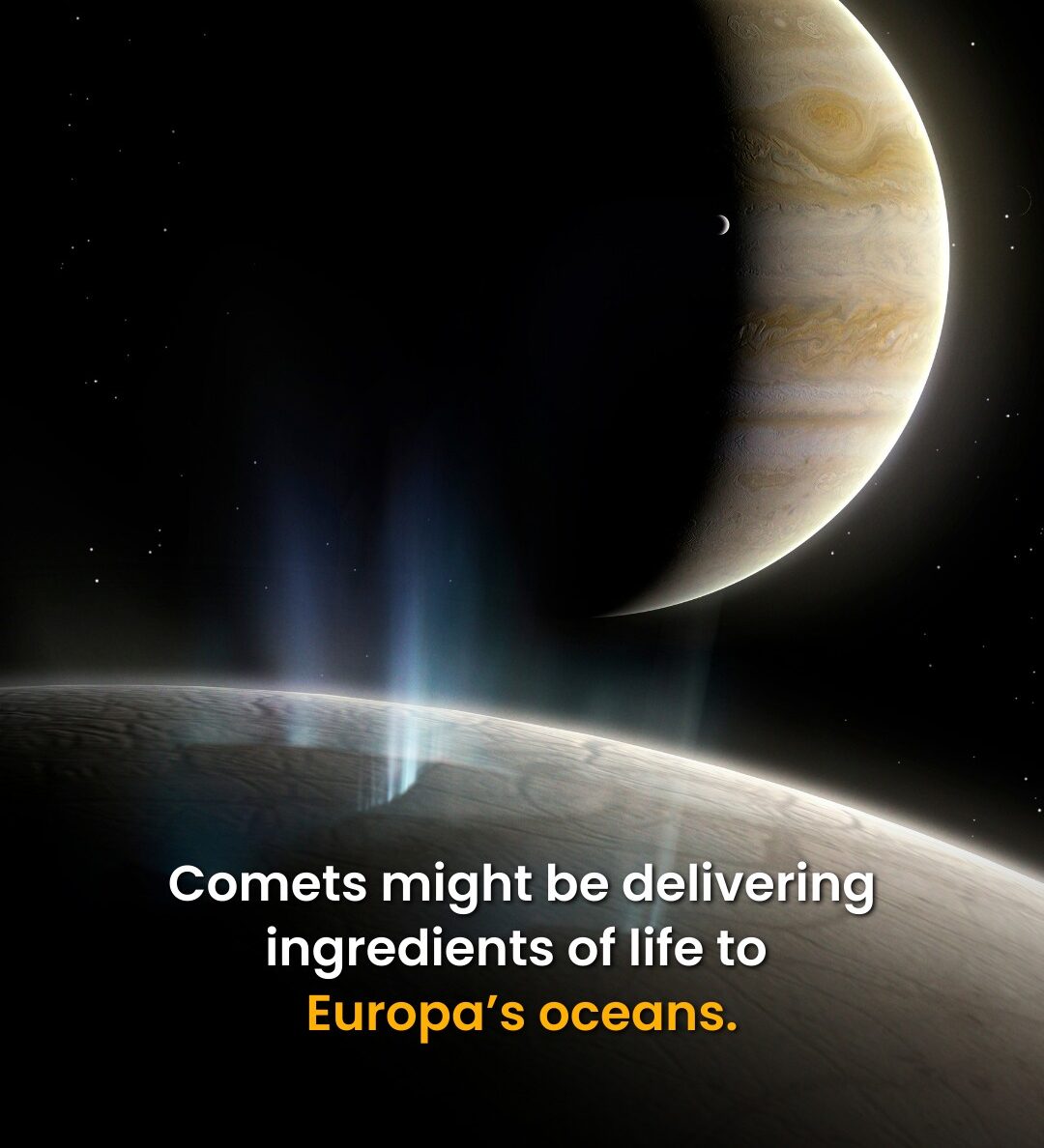New Research Suggests
That Comets Slamming Into Jupiter’s Moon Europa Might Be Doing More Than Just Creating Craters—They Could Be Delivering Vital Ingredients For Life.
Scientists Have Long Believed That Europa’s Subsurface Ocean Could Harbor Life, Thanks To The Internal Heating Caused By Its Gravitational Dance With Jupiter. But For Life To Truly Thrive, More Than Just Heat Is Needed—Oxidants, Which Help Fuel Energy Reactions, Are Essential.

These Oxidants Are Formed On Europa’s Icy Surface By Solar Radiation
These Oxidants Are Formed On Europa’s Icy Surface By Solar Radiation, But They’re Separated From The Ocean By A Thick Crust Of Ice—Up To 25 Km (15 Miles) Deep. Here’s Where Comets Come In. Simulations Show That Even If An Impact Only Breaks Halfway Through The Ice, It Can Generate Enough Meltwater To Transport These Life-Giving Chemicals Down Into The Ocean Below.
Like Dropping A Heavy Object
Like Dropping A Heavy Object Into Ice, The Meltwater Sinks, Potentially Carrying Oxidants To Any Hidden Ecosystems Beneath. This Finding Could Help Explain How Life-Sustaining Chemistry Is Maintained On Europa—And It May Apply To Other Icy Moons Like Titan And Enceladus Too.
Research Paper
Evan Carnahan Et Al., “Surface-To-Ocean Exchange By The Sinking Of Impact Generated Melt Chambers On Europa”, Geophysical Research Letters (2022)
